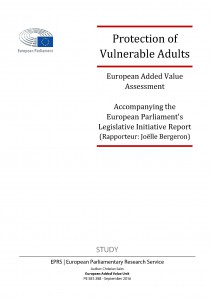 The University of Milan will host on 4 March 2016 the final conference of a project co-funded by the Civil Justice Programme of the EU: “Towards the Entry into Force of the Succession Regulation: Building Future Uniformity upon Past Divergencies“.
The University of Milan will host on 4 March 2016 the final conference of a project co-funded by the Civil Justice Programme of the EU: “Towards the Entry into Force of the Succession Regulation: Building Future Uniformity upon Past Divergencies“.
The project, lasting from April 2014 to March 2016, focuses on the impact of Regulation 650/2012 on national legal systems and the related national and European case law with the aim of assessing the changes that it introduces to legal practice, arising awareness within the legal professionals (notaries, lawyers and court judges), providing training and disseminating information in order to promote future uniformity in the application of its provisions. Video footage of the conferences and seminars organized in the frame of the project are available on its website, as well as a database of caselaw and legislation related to succession matters.
The sessions of the final conference will be held in English and Italian (with simultaneous interpreting). Here’s the programme (available as a .pdf file):
Welcome addresses – Presentation of the Project
- Stefania Bariatti (Univ. of Milan)
- Domenico Cambareri (Notary in Milan)
- Petra Jeney (EIPA, Luxembourg)
SESSION 1: Scope and definitions. Chair: Alegría Borrás (Univ. of Barcelona)
- Introduction to the Regulation and to Its Scope, Domenico Damascelli (Notary in Turi and Univ. of Salento)
- The Definition of “Succession” and Habitual Residence Within the Meaning of the Regulation (EU) 650/2012, Peter Kindler (Ludwig-Maximilians-Universität München)
SESSION 2: Applicable law. Chair: Roberta Clerici (Univ. of Milan)
- Applicable Law: Choice of Law, Ilaria Viarengo (Univ. of Milan)
- Agreements as to Successions, Jacopo Re (Univ. of Milan)
- Public Policy and Overriding Mandatory Rules, Francesca C. Villata (Univ. of Milan)
- Renvoi, Luigi Fumagalli (Univ. of Milan)
- Practice Paper, Daniele Muritano (Notary in Empoli)
SESSION 3: Jurisdiction and recognition. Chair: Alexandra Irina Danila (Notary in Romania)
- Jurisdiction: General Rules and Choice of Court, Ilaria Queirolo (Univ. of Genoa)
- Jurisdiction: Other Grounds, Stefania Bariatti (Univ. of Milan)
- Recognition of Judgments, Stefano Dominelli / Francesco Pesce (Univ. of Genoa)
- European Certificate of Succession: First Remarks concerning its Application, Carlo Alberto Marcoz (Notary in Turin)
SESSION 4: Round Table: The Impact on Member States and Third Countries. Chair: Stefania Bariatti (Univ. of Milan)
- Isidoro Calvo Vidal (Notary in Coruña)
- Cyril Nourissat (Univ. Jean Moulin Lyon 3)
- Peter Kindler (Ludwig-Maximilians-Universität München)
- Andrew Godfrey (Russell-Cooke, London)
- Paul Beaumont/Jayne Holliday (Univ. of Aberdeen)
Further information and the registration form are available on the conference’s webpage.


